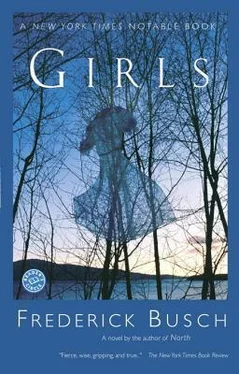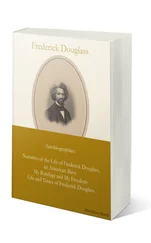She looked the way you do when someone talks to you in a foreign language but for a minute you thought it was English and you couldn’t figure out why you didn’t understand.
She said, “You’re crazy, Jack. I think you’re going crazy with this. Or us. Or the combination. Jack, what was that about you shouldn’t have done it? What were you telling me?”
“Shouldn’t have — is that something I told you?”
“Just now.”
“Shouldn’t … Oh. Oh. Shouldn’t have taken the job. Shouldn’t have let them talk me into, I don’t know, investigating, I guess you’d say. The Tanner girl. Janice Tanner? I didn’t need that, did I? Of course, Archie would say I did.”
Her head dropped. Then she got her chin level again. She shook her head very slowly. “I would say you didn’t.”
“I would, too, right now. It’s just, it didn’t seem fair. I couldn’t figure out why somebody couldn’t look after these kids a little. I know. It isn’t fair. It isn’t. Their parents didn’t want anything bad to happen. I sure know Mrs. Tanner’s hanging on to her pain just to find out something good so she can die. Damn thing is, there isn’t anything good for her to learn.”
“You know about it? I mean you know who?”
I nodded. I said, “Yeah. I do. I think I do.” Then I said, “Fanny.” I said it like a kid who was waiting to get his nerve up and ask for a date. “Could you come home again?”
All she said was “Jack.” I’d known her so long. But I couldn’t make out what she was telling me. “Jack,” she said again.
“Could you drive home from here instead of going to Virginia’s? I promise not to go there and bother you. Just go there and take a bath and go to sleep. Take the dog. I’m really boring for him, and he hasn’t seen you in a long time. Just go to the house. When I come in tonight, stay there. Don’t go to work. And we can talk. Or we don’t have to. We can hang around together. Or just be in the same place. Or you can go to work and you don’t need to see me.”
She said, “I gather you’re giving me a series of options here, Jack.”
I shrugged. I made sure not to wince, because the last thing I wanted was for Fanny to see me move strangely, and then for her to unbutton my shirt and run her hands along my skin and then undo the bandages around my chest. It was also what I wanted nearly the most. I confused myself by remembering how Rosalie had opened my shirt and put her hands and then her mouth on my skin. I put my left hand in my pocket and let the right hang by my thumb to my belt buckle, and I waited.
She said, “Did you leave any out?”
I waited.
She said, “I’m not really cracking jokes. I’m trying not to cry.” I would have bet a week’s gas money that the dog was slapping his tail against the seat of the station wagon. She asked me, “Do you think I did us any good by moving out?”
I said, “Not for me. Maybe you saw things clearer or something. Except I don’t think you were having any seeing problems. You said it when you left. You wanted to force me into understanding our situation differently. Something along those lines. Do you think it helped?”
She said, “No.”
“Do you want to stay away from me forever?”
“No.”
“Do you think it’s my fault she’s dead?”
She closed her eyes. The tears ran under her lids. Her voice sounded like she was trying not to cough. “I don’t want to know. I don’t want to remember.”
“You remembered, though.”
“I can’t. I don’t want to anymore.”
I said her name. I said, “Hannah.”
It didn’t make her cry harder. I don’t think anything could.
I heard voices outside, near the entrance. She whispered, “Change of shift.”
“Come outside with me?”
She didn’t answer. She got down slowly, and she went down the hall to the right. After a few minutes, she came back with her coat on. She was wiping her face with a paper towel. She walked past me and past the people at the desk and out the big doors. I went after her. I felt them looking at me, and I knew they doubted I was human.
Outside, she was at the Torino wagon, opening the tailgate so the dog could get to her. He went up in the air, wriggling like a puppy. He went around her, then he took off. He went to the far edge of the parking lot, kicking up slush and snow, skidding on the ice, dragging his tail and rounding his hips when he turned. He was making the signal of playing a game. He looked like a ball carrier giving the dead-leg juke to a defensive back. I waited next to Fanny, not touching her.
When he stood next to her, panting, waving his tail, banging his head into her coat, I said, “Where to?”
She said, “I’m going to get into my car. I’m going to turn the engine on. When it’s warm enough, I’m going to let it roll. At the entrance to the road, I’ll either turn left to Virginia’s or I won’t.”
“Turn right,” I said. “Take the dog with you. Make a right.”
I went to my car and I kept my mouth shut when I got in. I watched the dog jump into her car. I started the engine and shut the window so I wouldn’t hear her motor. I held on to the wheel and looked at my hands. I closed my eyes. I counted one Mississippi two Mississippi three Mississippi four Mississippi five Mississippi six Mississippi, but I couldn’t get myself to ten.
I opened my eyes. I looked for her car, but she had left. I thought I saw her gray-violet exhaust smoke in the air. It blew raggedly on the wind, like the smoke from the hospital’s heating plant. You can tell it’s the dead of winter when the smoke stands straight up, stiff. When it blows apart, you can think of warmer temperatures. I thought it made a lot of sense for me not to wonder why she’d hurried.
HE WAS IN THE BLUE BIRD and eating something I think is called a horn. It was large and crescent-shaped and it seemed to have a great deal of shiny material on top of it. He wore a dark blue chamois shirt with frayed broad collars. It was opened several buttons, showing the mesh of the long-sleeved thermal undershirt that also showed beneath his sleeves rolled to the forearm. He had a lot of hair on his arms and wrists and it sprouted around the undershirt. The heat was high and wet in the Blue Bird, and the smokers were laying down a screen. Verna screeched her jokes; senior citizens laughed in what was probably among the pleasantest times of their day, since now they weren’t alone.
I wanted to be happy I was there, looking at Archie’s brilliant eyes in his ugly round face, but the heat was choking me and the smoke and lights made my eyes and forehead ache.
He said, “You look like a set of defective bowels.”
“It’s one of my favorite disguises.”
“At least you haven’t cut yourself shaving the last few days.”
“They took our razors away. Belts, shoelaces, you know the routine. Can you get out of here with me awhile?”
“I’m on my first pastry,” he said.
“I’m about on my last, Arch.”
He pointed a finger in the air. He performed a horror. He stabbed the horn into his coffee cup, brought up the dripping, shiny, melting cake, and, tipping his head back, stuffed it into his mouth. He didn’t swallow it, though. He did something like straining it, because although I saw him swallow, the cake clearly remained bunchy in his mouth. He got his coffee cup up and tipped the remaining coffee through his gritted teeth. It made the noise of a garbage-disposal unit in a sink.
Then he said, “Ah.” He put money on the table, slid sideways, and we went. I drove him out of town, past the frozen lake I’d gone to, and he didn’t talk. I didn’t look at him. We got to Johnnycake Hill and went up about a half a mile before I pulled off near a field where loggers deposited trimmed evergreen trunks for the local mill trucks to take with their huge oily grippers.
Читать дальше










